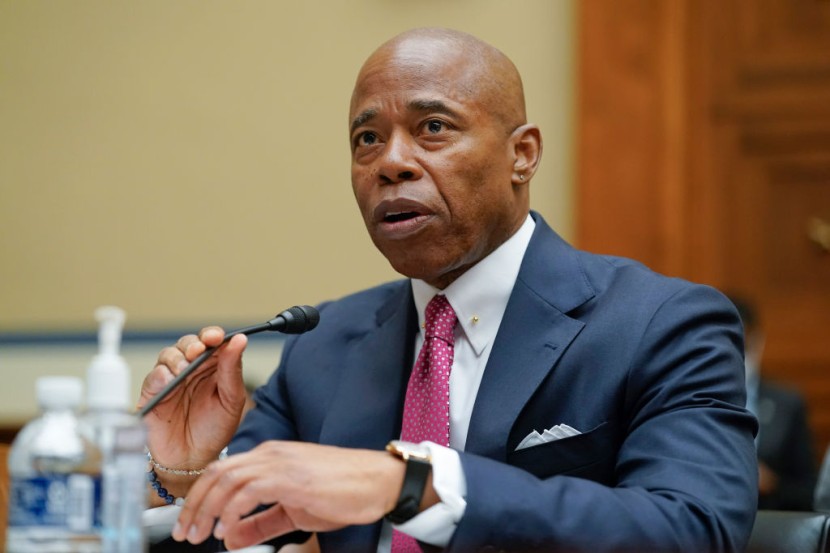
New York City Mayor Eric Adams responds to criticisms about his declaration to treat homeless persons with serious mental illness who are untreated on the city's streets and subways by sending them to hospitals.
In a video published by Politico, Mayor Adams leaving people with no means to take care of themselves and may endanger themselves and others is "inhumane."
"I'm going to make sure the people get the care they need. We are not taking everyone, who has mental illness into custody," New York City Mayor Eric Adams said, noting that authorities will not arrest people.
"So all of this hysteria being raised is totally in conflict with what New York is," he said.
Critics of New York City Mayor Eric Adams' proposal have pointed out the plan's dependence on government compulsion and its vulnerability to police abuse of authority.
Addressing Increasing Crimes in The Big Apple
On November 29, Mayor Adams announced that he had directed various organizations to revise their procedures and get training to start removing persons who exhibit mental illness and an inability to satisfy basic living requirements, even when no previous threatening conduct has been recorded.
The New York Police Department and the Metropolitan Transit Authority Police are also participating in this endeavor, according to Reuters.
In October, Adams remarked that subway crimes were "motivated by persons with mental health concerns."
The mayor's statement that he was taking the city into "uncharted seas where others were scared to tread" after the policy's release on November 29 received a lot of attention in The New York Times on December 2.
The state Office of Mental Health provided the first guidelines that this order implements back in February.
The mayor's spokesperson, Kate Smart, told me the initiative is complementary to plans to increase funding for housing and mental health. She argued that Adams' order only codifies current policy and does not significantly increase police authority.
A representative from the Office of Mental Health, James Plastiras, also explained that Mayor Eric Adams' announcement is not a new policy or program but rather interpretative advice on existing legislation.
Extreme Measure Not Necessary
Meanwhile, Dr. Tania Glenn, president of Tania Glenn and Associates in Central Texas, specializing in mental health care for first responders, said that the measure of Mayor Adams to address the issue is like "slapping a Band-Aid on a gaping wound that needs surgery," which she finds as "extreme."
The mental health expert said that though individuals need assistance with their mental illness, forcing them to enter facilities strikes as a violation of civil liberties, as per a report from Fox News.
The announcement of Mayor Eric Adams was made as New York City, the biggest city in the country, deals with a homeless crisis-at least 60,000 New Yorkers are dwelling on the streets or in shelters-and escalating violence in many areas, including on the subway, where crimes underground are increased more than 40% in 2021 and killings on the train are at their worst yearly levels in 25 years.
The New York Times reported that helping homeless individuals, especially those with mental health issues, has been a challenge in other major cities. For certain homeless persons in California who suffer from mental health issues like schizophrenia, new legislation signed by Governor Gavin Newsom might mandate that they seek treatment.
Involuntary outpatient treatment is legal in many places, and Washington State also permits hospital commitments if a court determines that the patient poses a risk to others or themselves.
Read also: China: Anti-Zero COVID Protesters Fear Communist Party Crackdown Amid Easing of Restrictions
© 2026 HNGN, All rights reserved. Do not reproduce without permission.








